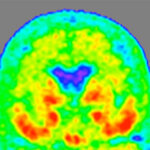Published in the journal Menopause, researchers affiliated with the North American Menopause Society (NAMS) found a possible link between dietary fiber and depressive traits, with a higher risk for depression among premenopausal women in particular.
Depression is a serious, yet common condition primarily affecting women. It is estimated that 264 million people suffer from depression across the world, according to recent data.
In the new study, data from the Korea National Health and Nutritional Examination Survey was collected. Researchers also assessed depressive traits through a questionnaire and dietary fiber intake of more than 5,000 female adult participants.
The study, as publicized in Menopause, states: “Among the premenopausal women, dietary fiber intake was higher in the nondepression group than in the depression group, while there was no significant difference among postmenopausal women.”
It follows by stating, “Accordingly, among the premenopausal women, a significantly inverse relationship was observed between a change in daily dietary fiber intake as 1 g/1,000 kcal and the prevalence of depression in the fully adjusted model with an odds ratio of 0.949. However, among the postmenopausal women, this significant association was not observed.”
In short: the findings suggest that dietary fiber intake correlates with depressive traits, but only in premenopausal women.


